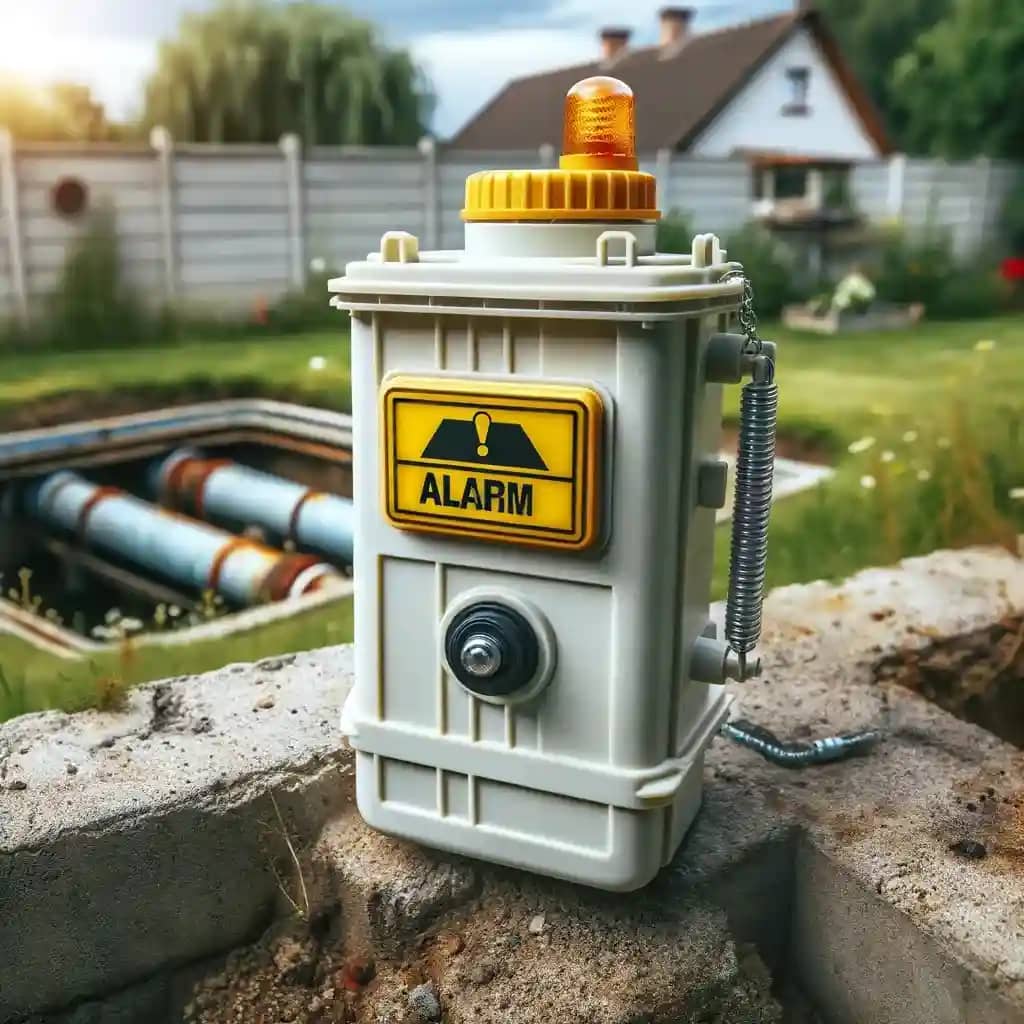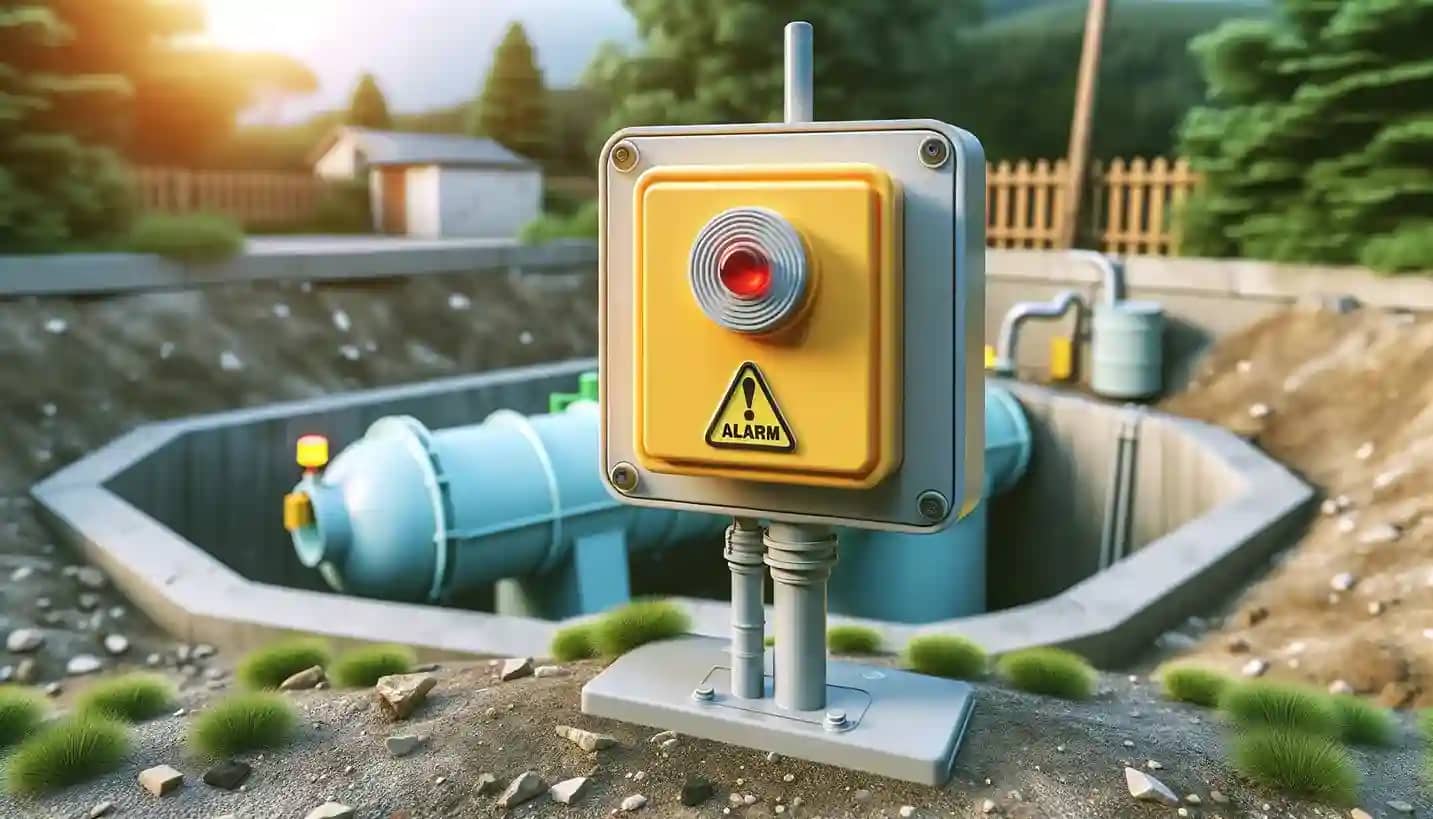A septic tank alarm is a device that sounds an alarm when the septic tank is full or there is a problem with the septic system. Septic tank alarms are important because they can help to prevent sewage backups and other problems.
Usually there is nothing to worry about, but we still recommend that you take a look at the information in this article. That way you will know what to do in case of any problems.
Causes of Septic Tank Alarm Going Off
Usually the alarm is activated when there is a serious problem. It is a sign that something is wrong with your tank. There are a number of things that can cause a septic tank alarm to go off, including:
Full Septic Tank
When the septic tank is full, the alarm will sound to let you know that it needs to be pumped. Don’t worry, this is normal. You know that it needs to be pumped from time to time. In this case, you should get help from a professional septic tank pumping service company
Clogged Drain Line
This is more serious and indicates that there may be a malfunction. A clogged drain line can prevent wastewater from flowing into the septic tank, which can cause the alarm to go off.

Damaged Septic Tank
A damaged septic tank can leak wastewater, which can also cause the alarm to go off. Leakage is one of the things we don’t want. If the alarm is going off for this reason, you should get it fixed immediately. You must not let the problem escalate
Malfunctioning Septic Tank Alarm
Not every alarm may be caused by a problem. Sometimes, the septic tank alarm itself can malfunction and sound the alarm even when there is no problem with the septic system. If you are sure that your alarm is going off by itself, then you should be interested in fixing it. Because it could be a recurring fault.
What to Do When Septic Tank Alarm Goes Off
What’s that? Did you hear your septic tank alarm go off? Like most alarms, this one will give you peace of mind. But calm down, this is a common occurrence. First of all, if you have identified the problem according to the items above, if your septic tank alarm goes off, there are a few things you should do.
Check The Septic Tank Level
Use a dipstick to check the level of wastewater in the septic tank. If the tank is full, it will need to be pumped. As mentioned above, there are companies that do this professionally, unless you have your own pumping truck 🙂
Note: You cannot do the pumping yourself. But if the absurd happens and you have a pumping truck, make sure you follow your state’s rules on where to dispose of wastewater from now on. Take care not to pollute nature and the environment. Remember, we are not the only ones living in nature. Please be aware that it can also be dangerous for many animals and plants.
Inspect The Drain Lines
Look for any clogs or blockages in the drain lines. If you find a clog, clear it using a drain snake or other appropriate tool. If you don’t want to do it yourself, there are many services that do it.
Inspect The Septic Tank
Look for any signs of damage to the septic tank, such as cracks or leaks. If you find any damage, you will need to contact a qualified professional to repair or replace the septic tank.
Test The Septic Tank Alarm

If you have checked the septic tank level, inspected the drain lines, and inspected the septic tank, and you still cannot find the cause of the alarm, you may need to test the septic tank alarm itself. You can do this by disconnecting the alarm from the power supply and then reconnecting it. If the alarm sounds again, it is likely that the alarm is malfunctioning and will need to be replaced.
Septic tank alarms are important devices that can help to prevent sewage backups and other problems. If your septic tank alarm goes off, it is important to take action to identify and fix the problem as soon as possible.
By following the steps outlined in this article, you can troubleshoot the problem and get your septic system back up and running properly.
Other Things You Can Do:
- In addition to the steps outlined above, there are a few other things you can do to prevent septic tank alarm problems:
- Have your septic tank pumped regularly.
- Avoid putting grease, fats, and other solids down the drain.
- Use water-saving fixtures and appliances.
- Keep trees and shrubs away from the septic tank.
By following these tips, you can help to keep your septic system in good working order and avoid costly problems. If you have any further questions or concerns, please feel free to contact us in the comments section. We will answer and help you as soon as possible.
